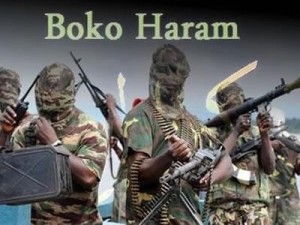
By Ann Marie Foley - 30 March, 2015

Elections began on Saturday in Nigeria and were extended into Sunday in some regions because of delays and some violence at polling stations.
Technical issues with new biometric cards caused some delays while in other areas, the counting of votes had already got underway after polling stations closed on Saturday.
There was also some election violence. It was reported on Saturday evening that more than 20 people were killed in several incidents.
In advance of the elections for the Presidency and the parliament there was a major offensive by Nigerian troops and a multinational military force to re-conquer areas controlled by Boko Haram aimed at strengthening security in the northeast of Nigeria.
“In those areas it is hard to imagine that regular elections will be held, given the large number of internally displaced persons,” said Fr Patrick Tor Alumuku, Director of Social Communications of the Archdiocese of Abuja.
Speaking to Fides shortly before the elections, he said that it has been estimated that 80-90% of the areas occupied by Boko Haram have been freed in recent weeks by the army.
“One can see how the military offensive prepared itself in recent months thanks to the supply of weapons from South Africa, after Western countries, particularly the United States, refused to sell arms to Nigeria,” said the priest.
“In Nigeria, however, one wonders why, if our military had the ability to hunt Boko Haram, this was not done before, why now, on the eve of elections?”

A school for displaced children at a camp at St. Theresa Catholic Church, Yola, Nigeria.
Caritas Internationalis reported that there are a million refugees and displaced persons caused by the violence of Boko Haram.
Fr Evaristus Bassey, Executive Director of Caritas Nigeria, who was in Rome for a conference recently spoke of how he was with the delegation of Nigerian Bishops who in early March visited 40,000 refugees in a camp at Maroua and other parts in the north of Cameroon.
He said they were greeted with joy wherever they went and added that many of the refugees and displaced persons are housed in Church structures.
For example, the Cathedral of Santa Teresa in Yola is home to about 270 people, in the Bishop’s house, oratory and school.
“Boko Haram is a sect which fights anyone, including Muslims, who does not adhere to its ideology,” said the priest.
Fr Bassey explained that about 20% of refugees are Muslims, more than 40% Christians and the rest belong to traditional African religion.
He said that to avoid tension, and because of a fear of Boko Haram infiltrators, the leaders of the refugee camps do not allow religious initiatives.
He collected “shocking testimonies” of the violence of Boko Haram, such as that of a woman who witnessed the brutal killing of her husband, or those who saw their brother beheaded or people forced to walk several miles to find refuge in Cameroon.
Countless children have been separated from their parents during terrifying escapes.
“We have collected testimonies of forced recruitment in the ranks of Boko Haram, sometimes using drugs to weaken the will of young Christians. Many of these, however, then try to escape,” he said.
“Now that the Nigerian army is liberating the areas occupied by Boko Haram there is hope of allowing the displaced persons to return to their homes, but it will take time because destruction is enormous.”